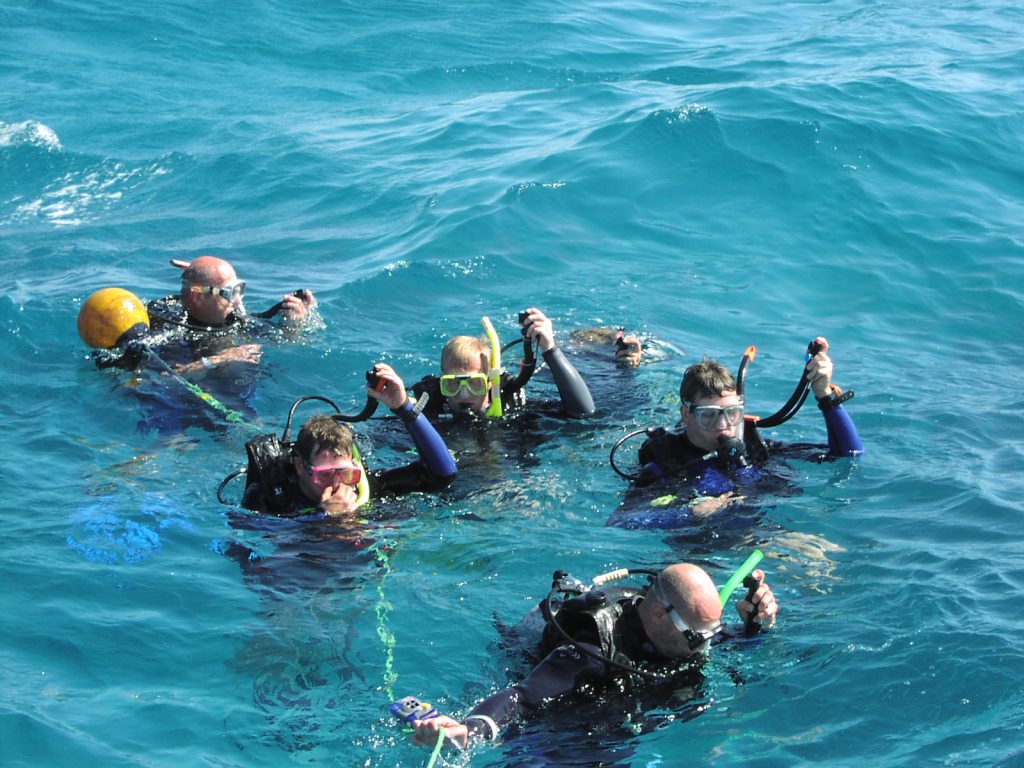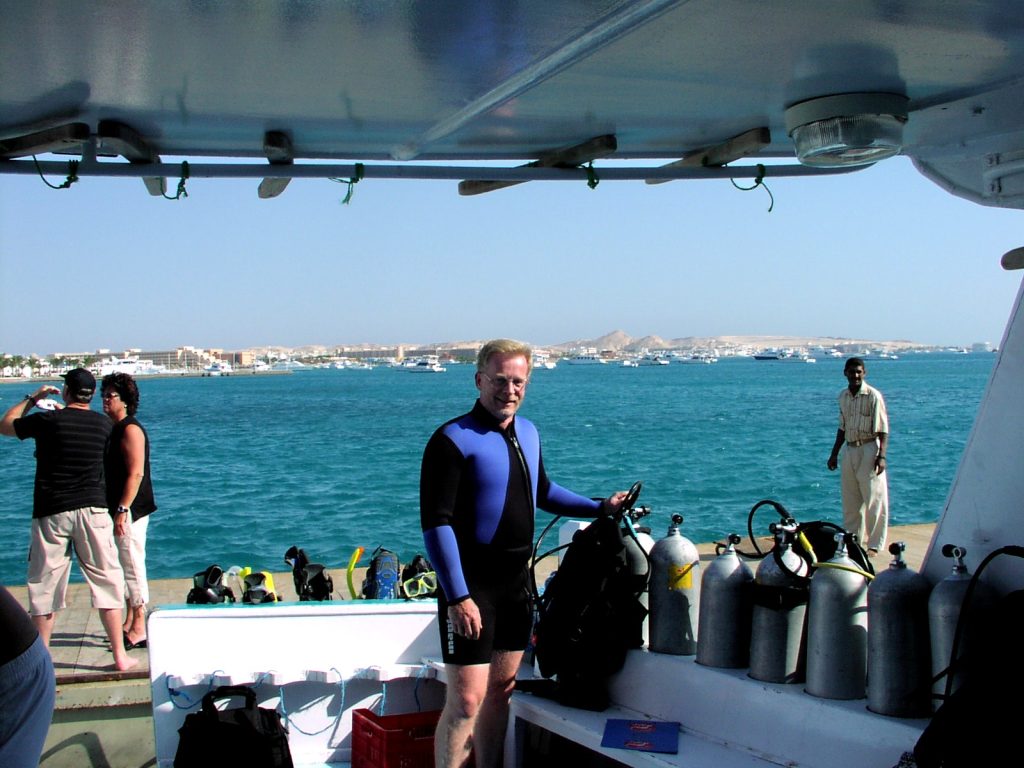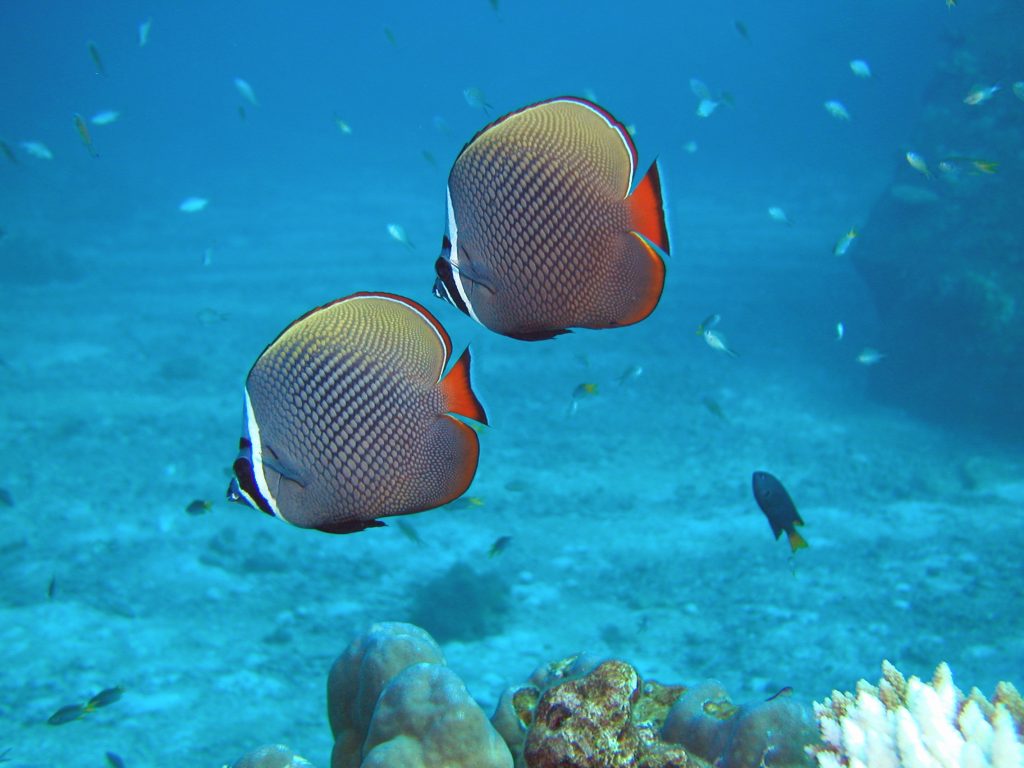Embark on a Scuba Diving Adventure
It is likely that you have been fantasizing about beginning your scuba diving adventure. In the near future, you will have the opportunity to discover the magnificent and stunning underwater realm. Perhaps you have already caught glimpses of this world through nature documentaries or heard thrilling tales from your diving friends. Just imagine diving into the vibrant coral reef and encountering a variety of colorful sea creatures such as fish, turtles, dolphins, and even whales. And for those interested in history, there are countless sunken ships waiting to be explored all around the globe, just like Jacques Cousteau did when searching for the lost city of Atlantis.

For those curious about the practical aspects, there is positive news: scuba diving is not as challenging, risky, or costly as one may believe. It does not demand elite athleticism and basic health is sufficient. The upcoming text will clarify these widespread misconceptions.
Scuba diving is not a challenging activity.
The process of becoming a certified scuba diver begins with enrolling in a diving course. These courses are offered by various organizations and more details about them will be provided later. The courses are of good quality and, although there is a lot to learn, the material is taught at a reasonable pace. The course begins with theory, covering diving safety rules, information about scuba equipment, and then moves on to hands-on practice in either a shallow pool or open water. These practical exercises are repeated until participants have acquired the necessary skills and knowledge. The theoretical aspect of the course does not require advanced mathematical or scientific knowledge, as the learning materials are well-organized and important concepts are frequently reviewed throughout the course. Additionally, the course instructor is available to provide further explanations if needed. By staying focused during lessons and studying for the exam, passing the course should not be difficult. Participants are often highly motivated and engaged, making learning a relatively easy task.
Diving while using an underwater breathing apparatus is not a hazardous activity.
Scuba diving may be perceived as a risky extreme activity. However, if one remembers what they have learned during diving courses, it cannot be classified as such. The course emphasizes simple and easy-to-remember rules that significantly increase safety. These include checking your diving partner’s equipment before diving, breathing normally instead of holding your breath, avoiding solo dives, and leaving safety margins for depth and air volume. These rules are not difficult to remember. While there are potential risks in diving, the course prepares individuals for such situations. One must know how to clear a mask, release a cramp, and share air with their partner. These skills are crucial for a safer and more enjoyable diving experience. Ultimately, by using common sense, following course rules, and staying within one’s limits and abilities, scuba diving can be considered a safe sport.

Starting scuba diving is not limited to millionaires only
The initial cost of scuba diving primarily consists of the course fee. The price for a basic scuba diving course varies depending on the training organization and the location where the course takes place. In Malta, for example, the PADI OWD (Open Water Diver) course, which is a globally recognized diving certification, costs around 300-400 euros. Some diving clubs offer affordable scuba training, making it a viable option. By joining a diving club, one may receive a discounted rate for the course and other benefits, such as budget-friendly diving trips using the club’s own boat. In Finland, for instance, a diving club offers a CMAS* / CMAS P1 basic course (also recognized globally) for 300€ to its members and 400€ to non-members. The extra 100€ for non-members includes a membership fee for the diving club, which encourages clubs to attract more members and increase their activity levels.
Typically, it is necessary to have your own basic gear before beginning the course, such as a mask, snorkel, and fins. Some individuals may have obtained these from a previous tropical vacation while attempting snorkeling. However, if you do not possess these items or cannot borrow them from a friend or dive center, it is possible to purchase quality equipment for approximately one hundred dollars. It is wise to invest in good gear for the sake of comfort and underwater performance, so it is not advised to rely on cheap ten dollar equipment sets from tourist shops.
Like many other sports, diving can require a significant financial investment in equipment. This may include a diving computer, wetsuit, gloves, boots (if using open-ended fins), and a diving knife. However, if you are unsure if diving is your passion, it is recommended to try a beginner dive first. This usually costs only a small amount and all necessary equipment is provided. When beginning a scuba diving course, it is wise to rent all necessary equipment except for a snorkel, mask, and fins. This allows you to test different equipment and determine which suits you best before considering purchasing your own. Of course, if you plan to dive frequently, it may be natural to eventually invest in your own equipment.
Criteria for Enrolling in a Scuba Diving Training Program
There is no need to be a marathon runner or long distance swimmer in order to enroll in the course. Basic health and the ability to take a short walk without difficulty or becoming out of breath are sufficient. Additionally, being able to swim a short distance is necessary for safety reasons. If you are not a confident swimmer, it would be wise to sign up for swimming lessons. This skill will be beneficial for your entire life. Before beginning the course, you will be given a medical questionnaire to complete. Even if you answer yes to some questions, it does not automatically disqualify you from recreational diving. Instead, you will need to schedule an appointment with a doctor who can issue diving medical certificates. The doctor will assess your suitability for diving to ensure there are no risks involved. If you still have any uncertainties, the course providers will be happy to assist you and answer any questions you may have.
Minimum age requirement for obtaining a scuba diving certification
The age requirement for scuba diving courses usually falls between 10-12 years, depending on the specific training organization. Children under 15 years old are classified as junior scuba divers and are restricted from diving as deeply and independently as adult divers. Currently, both PADI and SSI offer basic courses for 10-year-olds, while CMAS and BSAC require a minimum age of 12. PADI also offers a Bubblemaker course for 8-year-olds, which serves as an introductory dive to gauge their interest and comfort level with diving. This trial dive is limited to a depth of two meters. It is crucial to approach younger divers with caution and professionalism, as their bodies may be more susceptible to decompression sickness and other diving risks. Therefore, it is recommended to leave test dives for professional instructors rather than attempting them independently with family members. If a child decides to try diving, it should be of their own free will. Once children are old enough, scuba diving can be a fantastic hobby for the whole family, providing valuable bonding time and adding excitement to holiday trips.
There is no specific age restriction for scuba diving, making it a suitable hobby for retired individuals in good health. Prior to diving, it is important to consult with a doctor who specializes in diving medicine to ensure your suitability for the activity.

Which organization and course should I select for training?
When it comes to scuba training, there are numerous organizations and courses available. To make a decision, it is best to communicate with individuals from dive centers and clubs in your vicinity. The internet is also a useful source for information on scuba diving clubs in your local area. Additionally, some clubs promote their courses on notice boards at swimming halls. If you require assistance in finding a suitable course in your area to begin your scuba diving journey, you can also utilize our contact form.
Below are a few links to the webpages of various scuba training organizations. These pages provide details on entry-level full diver certification courses.
The basic course for Open Water Diver (OWD) is offered by PADI (Professional Association of Diving Instructors). CMAS (Confederation Mondiale des Activites Subaquatiques) also offers a basic course, which is known by different names such as CMAS*, One Star Diver Training Programme, or CMAS P1. The Ocean Diver course is provided by BSAC (British Sub-Aqua Club). SSI (Scuba Schools International) offers the basic course called SSI Open Water Diver (OWD). Scuba Diver is the basic course offered by NAUI (The National Association of Underwater Instructors).
In order to avoid plagiarism, the text should be rephrased without altering its meaning or context. It is important to maintain the markdown formatting.
The text needs to be rephrased in order to eliminate any instances of plagiarism. This can be done by altering the structure of the text while ensuring that the overall meaning and context remain unchanged. The markdown formatting must also be preserved.
Feeling overwhelmed with the abundance of options available? Don’t fret, wherever you decide to go, the standard of instruction is likely to be high. A useful factor to consider is the variety of courses offered by dive centers and clubs near your local area or vacation spot.
Congratulations on your choice to begin diving! We are here to assist you on your journey with this thrilling new hobby.
PADI – Professional Association of Diving Instructors. A recreational diving membership and diver training organization
CMAS – Confédération Mondiale des Activités Subaquatiques. An international federation that represents underwater activities in underwater sport and underwater sciences
SSI – Scuba Schools International. A for-profit organization that teaches the skills involved in scuba diving and freediving
NAUI – The National Association of Underwater Instructors. A nonprofit association of scuba instructors
All Photos © Copyright by Johannes Kaiser-Kaplaner